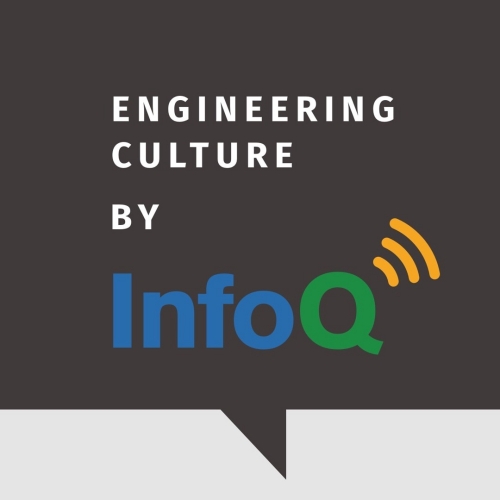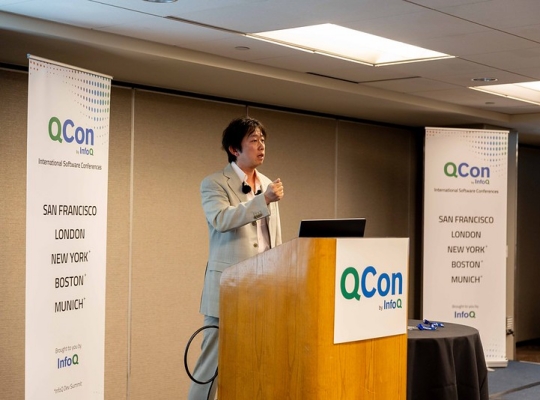Codetown
Codetown ::: a software developer's community
August 2017 OJUG Recap - Adam Davis on Groovy at Canvs
August 2017 OJUG Recap - Adam Davis on Groovy at Canvs
We had a great meeting with Adam Davis presenting on Groovy. Our co-working space Canvs, formerly at Church Street Station opened up a new office in Winter Park and we had our meeting there. Thanks to Camille Priest, Operations and Membership Coordinator, for the help in securing the space. Hopefully Canvs will be OJUG's new meeting location since DeVry is harder to secure these days.
Adam covered much of Groovy's basic functionality. If I had one wish, it would have been for Adam to include a little more explanation about configuring Groovy. I think we all walked away with enough Groovy knowledge under our belts to hit the ground running with Groovy after the talk.
Adam posted his presentation slides here: https://www.slideshare.net/AdamDavis30/learning-groovy-1-half-day-w...
Adam's written a book on Groovy available here: http://www.apress.com/us/book/9781484221167
Thanks, Adam!
Tags:
Replies to This Discussion
-
Permalink Reply by Adam Davis on September 5, 2017 at 12:05pm
-
Thanks Michael. I had a great time. This is a really great venue and it was great to meet everyone there. The book's new landing page is: http://www.apress.com/us/book/9781484221167 It's also available on a website that rhymes with Bamazon as well as other places probably. :-)
-
Notes
Welcome to Codetown!
 Codetown is a social network. It's got blogs, forums, groups, personal pages and more! You might think of Codetown as a funky camper van with lots of compartments for your stuff and a great multimedia system, too! Best of all, Codetown has room for all of your friends.
Codetown is a social network. It's got blogs, forums, groups, personal pages and more! You might think of Codetown as a funky camper van with lots of compartments for your stuff and a great multimedia system, too! Best of all, Codetown has room for all of your friends.
Created by Michael Levin Dec 18, 2008 at 6:56pm. Last updated by Michael Levin May 4, 2018.
Looking for Jobs or Staff?
Check out the Codetown Jobs group.
InfoQ Reading List
Podcast: Building a Product-First Engineering Culture in the Age of AI

In this podcast, Shane Hastie, Lead Editor for Culture & Methods, spoke to Zach Lloyd about building a product-first engineering culture, and the critical importance of developers learning to effectively use AI tools while maintaining responsibility for code quality and understanding fundamental programming principles.
By Zach LloydPresentation: Making Augmented Reality Accessible: A Case Study of Lens in Maps

Ohan Oda discusses making the Lens in Maps AR feature accessible to visually impaired users. He explains the motivations, ideation, and challenges faced, sharing valuable lessons on designing inclusive AR experiences and the impact on users, including his work on precision with AR.
By Ohan OdaHow to Build Secure Software without Sacrificing Productivity

Security can clash with development efficiency. Focusing on minimizing breach impact can be more effective than prevention. Dorota Parad argues for flexibility in compliance and collaborating with security teams to define practical protections. Limiting blast radius and using automation can boost security with minimal productivity loss.
By Ben LindersInaugural MCP Dev Summit Charts AI Integration's Future

Developers and contributors of the Model Context Protocol (MCP) converged in San Francisco in May 2025 for their first developer summit, charting the future of this rapidly adopted open standard to enable seamless integration between LLM applications and external data sources and tools. Discussions focused on a roadmap for MCP, including critical enterprise features.
By Hien LuuArticle: From Legacy to Value: Building Digital Banking Products Across Central and Eastern Europe

This article shares practical experiences and concrete examples from multi-site teams that built a single solution and delivered value to customers across various European markets. It provides real-life stories and lessons learned from developing two banking products, Lending and Foreign Exchange (FX), and their evolving architecture over time.
By Lejla Vulovic, Ana Nad
© 2025 Created by Michael Levin.
Powered by
![]()